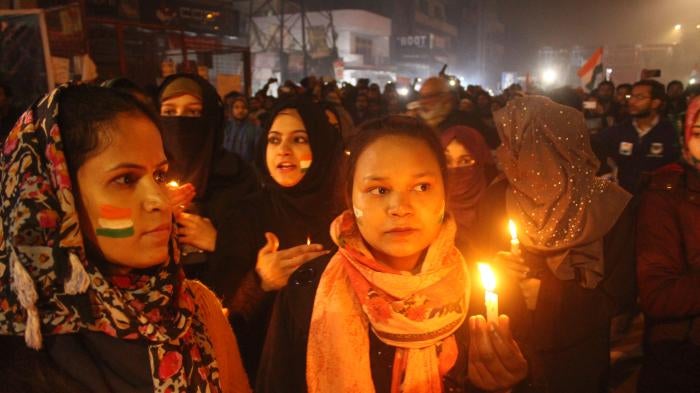Deprivation of Citizenship in India
Citizenship in India is primarily governed by the Citizenship Act of 1955. This act outlines the legal framework for acquiring, terminating, and depriving citizenship. Deprivation of citizenship refers to the loss of citizenship status under specific circumstances defined by Indian law.
Legal Framework
Citizenship Act, 1955
The Citizenship Act of 1955 is the principal legislation regarding citizenship in India. It details the conditions for acquiring and terminating citizenship. The act establishes the legal basis for deprivation of citizenship.
Article 9 of the Constitution
Article 9 states that any person who voluntarily acquires the citizenship of another country will cease to be an Indian citizen. This provision enforces the principle of dual citizenship prohibition in India.
Grounds for Deprivation of Citizenship
Section 10 of the Citizenship Act, 1955
This section specifies the conditions under which citizenship can be terminated. The grounds include:
- Acquisition of Citizenship of Another Country: Automatic loss of Indian citizenship occurs when an individual acquires citizenship of another nation.
- Disloyalty to the Indian State: Citizenship can be revoked if a person is found disloyal or acts against national interests.
- Criminal Activities: Engaging in activities that threaten India’s sovereignty and integrity can lead to deprivation.
- Membership in Certain Organizations: Being part of organisations deemed unlawful under Indian law can result in loss of citizenship.
Section 11 of the Citizenship Act, 1955
This section grants the government authority to cancel citizenship in specific cases. This typically applies to individuals who obtained citizenship through fraud or misrepresentation.
Process of Deprivation
The process of depriving an individual of citizenship generally involves several steps:
- Investigation: Authorities conduct an investigation into the grounds for deprivation.
- Notice: A formal notice is issued to the individual regarding the proposed action.
- Hearing: The individual may be allowed to present their case.
- Decision: The government makes a final decision based on the evidence presented.
Judicial Oversight
The Supreme Court of India and High Courts have the power to review cases of citizenship deprivation. This judicial review ensures adherence to principles of natural justice and the protection of constitutional rights.
Recent Developments
National Register of Citizens (NRC)
The NRC, particularly in Assam, has raised concerns about citizenship status. The process has led to debates on deprivation and the risk of statelessness for many individuals. It has provoked discussions about who qualifies as a citizen.
Citizenship Amendment Act (CAA), 2019
The CAA provides a pathway for non-Muslim refugees from neighbouring countries to acquire Indian citizenship. This act has sparked controversy and discussions about its implications for existing citizens and potential deprivation of citizenship for specific groups.
Implications of Deprivation
Loss of citizenship can result in statelessness. This status affects an individual’s rights and access to essential services. Deprivation can lead to severe social, economic, and political consequences for individuals and communities.
Historical Context
The issue of citizenship deprivation has historical roots in India. The partition of India in 1947 led to mass migrations and the displacement of millions. This historical backdrop has influenced contemporary citizenship laws and debates.
International Perspective
India’s approach to citizenship and deprivation is unique. Many countries have provisions for citizenship loss, often linked to national security or criminal activity. However, India’s laws are particularly stringent regarding dual citizenship and the grounds for deprivation.
Public Opinion
Public sentiment regarding citizenship deprivation is divided. Some view it as a necessary measure for national security. Others argue it can lead to discrimination and injustice, particularly against vulnerable communities.
Political Implications
The issue of citizenship deprivation has political ramifications. It can affect electoral dynamics and influence party positions. Political parties often leverage citizenship issues for electoral gains.
Human Rights Concerns
Deprivation of citizenship raises important human rights issues. Stateless individuals may lack legal recognition, affecting their access to education, healthcare, and employment. Advocacy groups highlight these risks and call for reforms.
Case Studies
Several cases illustrate the complexities of citizenship deprivation in India. High-profile cases often attract media attention and public scrutiny. These cases can influence public perception and policy discussions.
Future Prospects
The future of citizenship laws in India remains uncertain. Ongoing debates about the NRC and CAA suggest potential changes to the legal framework. The impact of these changes on citizenship deprivation will be closely monitored.
Legal Challenges
Legal challenges against citizenship deprivation cases are common. Courts often hear petitions questioning the constitutionality of deprivation actions. These challenges can set important precedents for future cases.
Impact on Minorities
Minority communities may be disproportionately affected by citizenship deprivation. Concerns about discrimination are prevalent, particularly regarding religious and ethnic minorities. This has led to calls for inclusive citizenship policies.
Role of Civil Society
Civil society organisations play important role in advocating for citizenship rights. They raise awareness about the implications of deprivation and support affected individuals. Their efforts contribute to public discourse and policy advocacy.
Global Comparisons
Comparative studies of citizenship laws worldwide provide valuable insights. Many countries face similar challenges regarding citizenship deprivation. Learning from international practices can inform India’s approach to citizenship issues.
Legislative Reforms
There are calls for legislative reforms to address the challenges of citizenship deprivation. Advocates argue for clearer guidelines and protections for individuals facing deprivation. Reforms could enhance transparency and fairness in the process.


